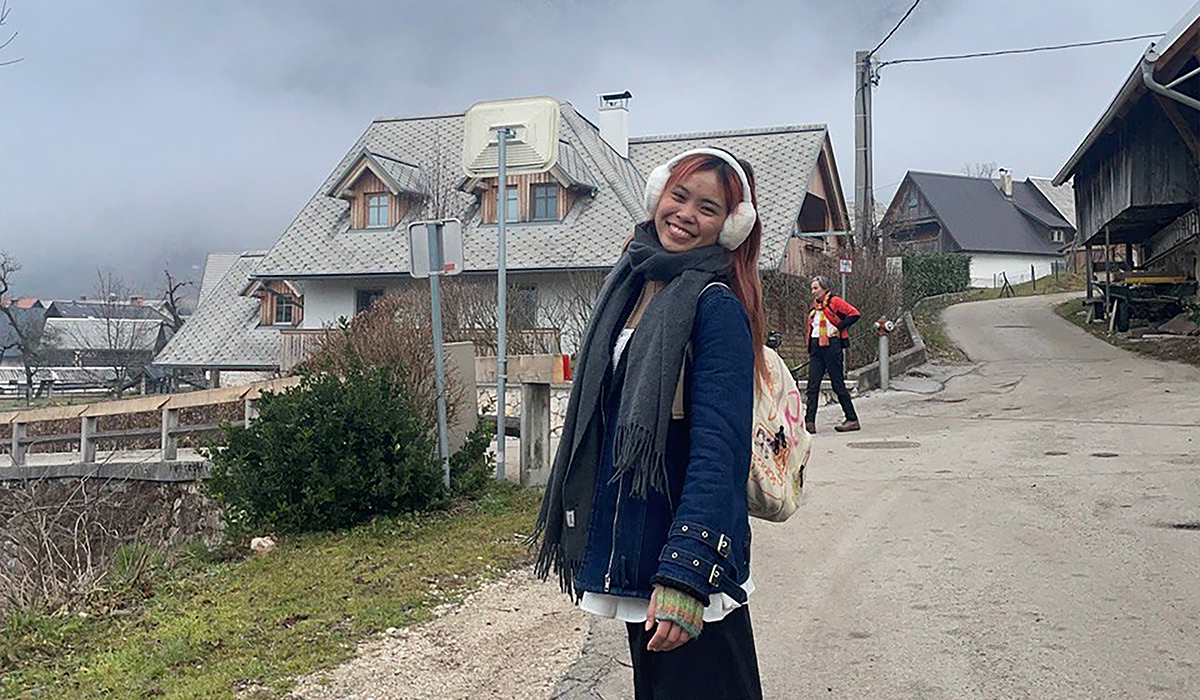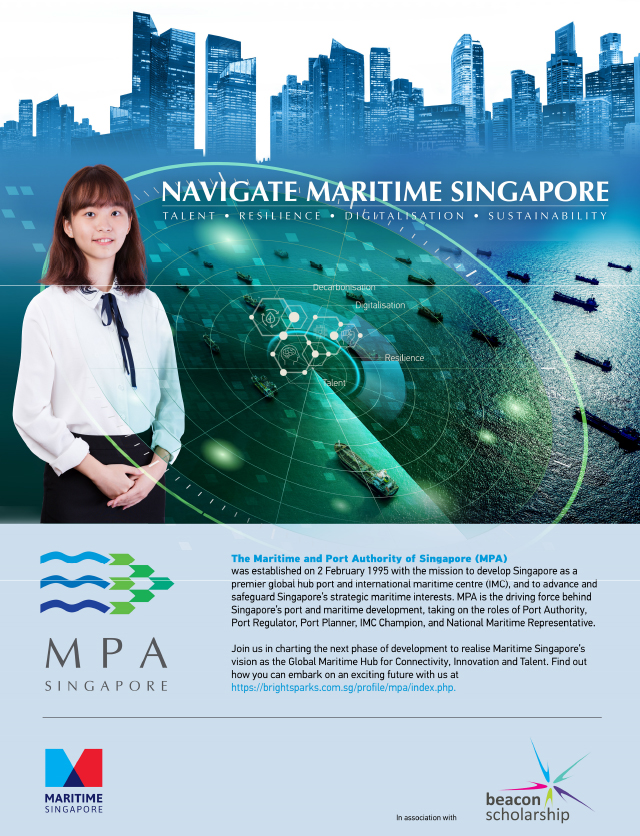Riane Lee is a MPA Overseas Undergraduate Scholarship recipient. She is currently pursuing a Bachelor of Arts and Sciences in Geography with the University College London. She will be embarking on an internship with MPA during her summer break.
As a nation built on maritime excellence, Singapore’s rich history as a bustling port city remains intertwined with its thriving economy. Central to its success is the Maritime Port Authority (MPA), responsible for safeguarding and advancing Singapore’s maritime interests.
Through the MPA Overseas Undergraduate Scholarship, aspiring individuals like Riane Lee are given the opportunity to contribute to the meaningful mission of the MPA. Currently pursuing a Bachelor of Arts and Sciences in Geography at the University College London, Riane ventures into uncharted territories, exploring the challenges hindering a sustainable economy soon. Her aspirations lie in formulating innovative solutions that can enhance the long-term sustainability of MPA’s endeavours, ensuring that the welfare of both people and the environment is at the core of all its decision-making processes.
Riane unravels her passion, aspirations, and her vision for making a difference in the maritime sector.
What sparked your interest in Human Geography?
I was inspired by the content I studied during ‘A’ level Geography classes, particularly the topics regarding climate change and climate negotiation. I was in a phase of my life where I felt troubled by the unsustainable ways in which we were living and was really invested in the debates around climate change and its impact globally.
Learning about the concepts governing climate negotiations helped me put into perspective the ways in which we can tackle this issue on a larger scale, and allowed me to understand the various forces in our economy that has led to our unsustainable ways of life.
What motivated you to pursue the MPA Overseas Undergraduate Scholarship over other scholarship opportunities given to you?
I particularly liked MPA’s sustainability initiatives and the actions taken to promote decarbonisation of the maritime industry. Given that the maritime industry contributes to over 3% of greenhouse gas emissions, the decarbonisation of the industry can make significant impacts and I wanted to contribute to this meaningful cause.
Furthermore, MPA is very international, given the connectivity of trade. Their work is fast-paced and ever-changing as well. Hence, I felt that it would be a stimulating environment to work in.
On top of financial support, MPA directors, staff and other scholars have also been very open to conversing about their work and experiences in MPA. There is also a long-term planning of career trajectories which gives me the guidance and freedom to plan my university activities.
Could you tell us more about the degree programme in Geography that you are currently undertaking?
In the first year, students are exposed to both physical and human geography. Our courses include: the history of geography, the theory of development, fieldwork methods, mapping using R-studio and more.
In the second year of the programme, we get to choose a specialisation in either physical or human geography, depending on the modules we take up. I chose this programme because I enjoyed the diversity of the subject which allows me to study both human and physical processes that explain why the world is as it is today. There are also opportunities to travel every year to conduct fieldwork overseas.
I really enjoy how forward-looking and impartial the course content is- we are introduced to a range of perspectives and taught how the history and development of geography has shaped the discipline and influenced geographical epistemologies today.
The professors are also very accomplished in their field, having done very influential research in their specialties. The broad-based teaching and assessment format also allows us the freedom to do in-depth research into specific topics we are interested in.
What are some exciting projects you have worked on at university?
I am part of the UCL Climate Action Society, and it has been very eye-opening to see the community that has been built around campaigning for a more sustainable campus life. We worked on a petition to encourage fossil free careers, and the support shown by students, professors, and staff in UCL and the universities and social groups around London has been heart-warming.
I met many like-minded people who are dedicated and passionate about the cause, and it is inspiring to see how active and action-oriented people are in the causes they are passionate about.
In what ways do you hope to apply the knowledge and skills you have acquired to your future role at MPA?
I hope the international perspective I gained allows me to better understand how MPA’s decisions and investments will impact other countries and vice versa. It would also be ideal if I could use my knowledge in enhancing MPA’s decarbonisation pathway, backed by an understanding of what urban cities and the globalised economy prioritise and how they operate, as well as how certain decisions will affect equality within countries.
What are your career goals and how do you hope to achieve them?
I hope to be able to work on solutions that could improve the sustainability of MPA’s work in the long-run and ensure that the impact of our work on people and the environment remain a core consideration in all our decisions.
I aim to achieve that through maintaining the connections I’ve made here and I am constantly learning from people and organisations that are pioneers in the field. The constant innovations in the field of sustainability makes it a fast-paced but exciting one, with much to learn from.
Your future looks incredibly promising! Lastly, what advice would you offer to individuals who are enthusiastic about pursuing a scholarship with MPA?
My top advice would be to be authentic. In your school years, many people will encourage you to chase all kind of achievements and accolades. However, I think what truly matters is to indulge yourself in the things you are passionate about, and think is a worthy cause, even if it is not something people traditionally put on their CV.
You could have many leadership roles and awards under your belt, which is amazing, but it’s important to identify what makes you stand out as well. What is more important to you than chasing achievements?
Do what you believe in and if that makes you a right fit for MPA, you’ll find the application process to be easy and fitting to who you are.



